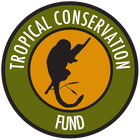TCF devised a Biodiversity Credit (Biocredit) system in 2021 which can succeed where Carbon Offsets failed. TCF Biocredits are a type of financial asset identified as units of biodiversity which are measurable and traceable and so can be traded and sold to individuals, corporates and government. Biocredits are a mechanism to quantify and track biodiversity conservation and preservation efforts and outcomes. They represent a unit of biodiversity that is being restored or preserved. Biocredits can help solve the challenge of finding finance for the conservation and restoration of the world’s biodiversity – its plants, animals and marine life. In short, the TCF Biodiversity Credit system helps protect biodiversity in tropical hotspots and in turn sells that credit to those in developed country who want to offset their impact on nature.
What's the problem with carbon offset programs? Many measures currently designed to address climate change actually are in direct conflict with biodiversity solutions. For example, mono-cultured reforestation projects don't take into consideration whether these trees are native, whether they will impact the already existing biodiversity and ecosystem function of the existing habitat, or whether they will actually have a net negative impact on carbon release. Or, solar panel projects that help us decarbonize are great unless they are constructed in pristine habitat and impact native wildlife. There are many other examples. The point is that many carbon decisions simply ignore the real impact on species and all biodiversity. And many corporations simply greenwash their impact on nature by buying credits that provide no real long-term solution to climate change and they certainly don't take into consideration the impact on biodiversity.
The solution is simple though. We need to stop treating these issues separately. Neither problem - biodiversity loss or global climate change - can be addressed independently. By protecting and restoring native landscapes we can protect biodiversity, limit release of carbon stores, help improve human health and maintain ecosystem services such as pollination, crop production, and flood control.
TCF incentivizes people and communities to value the protection of species and all ecosystem services.
What's the problem with carbon offset programs? Many measures currently designed to address climate change actually are in direct conflict with biodiversity solutions. For example, mono-cultured reforestation projects don't take into consideration whether these trees are native, whether they will impact the already existing biodiversity and ecosystem function of the existing habitat, or whether they will actually have a net negative impact on carbon release. Or, solar panel projects that help us decarbonize are great unless they are constructed in pristine habitat and impact native wildlife. There are many other examples. The point is that many carbon decisions simply ignore the real impact on species and all biodiversity. And many corporations simply greenwash their impact on nature by buying credits that provide no real long-term solution to climate change and they certainly don't take into consideration the impact on biodiversity.
The solution is simple though. We need to stop treating these issues separately. Neither problem - biodiversity loss or global climate change - can be addressed independently. By protecting and restoring native landscapes we can protect biodiversity, limit release of carbon stores, help improve human health and maintain ecosystem services such as pollination, crop production, and flood control.
TCF incentivizes people and communities to value the protection of species and all ecosystem services.
Please consider supporting the Tropical Conservation Fund by making a tax-deduction donation and offsetting your ecological footprint.
Now you can offset your ecological impact by directly contributing to the protection of the rainforest.
USD $50: One year - protection of primary rainforest (1500m2) equivalent to ecological footprint of one person living in developed world. Offset includes protection of ecosystem services, ranger program, education, and conservation projects to protect the area.
We are a 501(c)(3) charitable organization, EIN 81-3501574. All contributions are tax deductible. For donations equal to or above $75 we will provide a letter stating the fair market value of the service ($50 per parcel). If you would instead like to to donate to TCF without land offset, please note: No land offset.
Now you can offset your ecological impact by directly contributing to the protection of the rainforest.
USD $50: One year - protection of primary rainforest (1500m2) equivalent to ecological footprint of one person living in developed world. Offset includes protection of ecosystem services, ranger program, education, and conservation projects to protect the area.
We are a 501(c)(3) charitable organization, EIN 81-3501574. All contributions are tax deductible. For donations equal to or above $75 we will provide a letter stating the fair market value of the service ($50 per parcel). If you would instead like to to donate to TCF without land offset, please note: No land offset.
